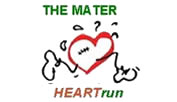IMPACT OF LACTATION MANAGEMENT EDUCATION ON HEALTH PROFESSIONALS
Abstract
Background: In 1992, Kenyatta National Hospital Lactation Management Education Centre
(KNH LME) was establised in collaboration with the University of Nairobi (UoN) and the
Ministry of Health (RJoH). The aim of the programme was to train multidisciplinary teams
of health professionals in lactation management education.
Objective: To determine the performance of doctors, nurses and nutritionists on lactation
management education, before and after exposure to the programme.
Design: A descriptive analysis of the pre and post test performance of doctors, nurses and
nutritionists on lactation management education.
Subjects: Two hundred and twenty nine health professionals, comprising one hundred and
thirty eight nurses, fifty six nutritionists, and thirty five doctors.
Results: The pt:rform:ance of all participants improved significantly (p = <.000) between the
pre and post test scores from a mean score of 54.0% in pre tesl, to a mean score of 72.0% in
the post test.
Conclusion: Adequate lactation management education content should be included in all
preservice medical curricula for all health professionals. In addition, an update of emerging
issues in lactation management education must be sustained, in all health institutions as part
of continuing education for inservice health professionals.
(KNH LME) was establised in collaboration with the University of Nairobi (UoN) and the
Ministry of Health (RJoH). The aim of the programme was to train multidisciplinary teams
of health professionals in lactation management education.
Objective: To determine the performance of doctors, nurses and nutritionists on lactation
management education, before and after exposure to the programme.
Design: A descriptive analysis of the pre and post test performance of doctors, nurses and
nutritionists on lactation management education.
Subjects: Two hundred and twenty nine health professionals, comprising one hundred and
thirty eight nurses, fifty six nutritionists, and thirty five doctors.
Results: The pt:rform:ance of all participants improved significantly (p = <.000) between the
pre and post test scores from a mean score of 54.0% in pre tesl, to a mean score of 72.0% in
the post test.
Conclusion: Adequate lactation management education content should be included in all
preservice medical curricula for all health professionals. In addition, an update of emerging
issues in lactation management education must be sustained, in all health institutions as part
of continuing education for inservice health professionals.
Refbacks
- There are currently no refbacks.


